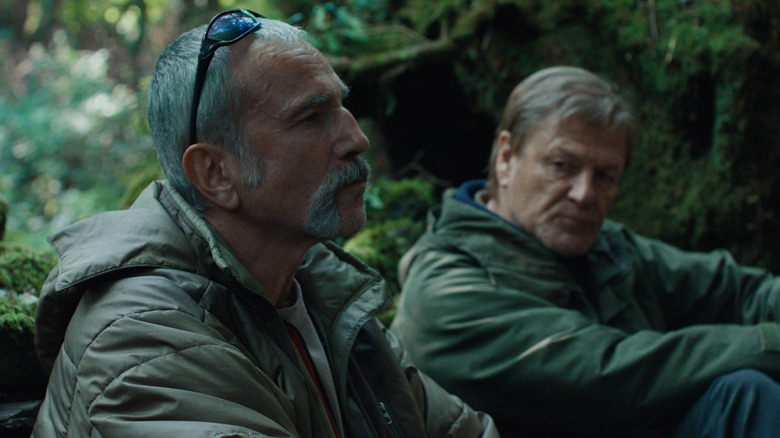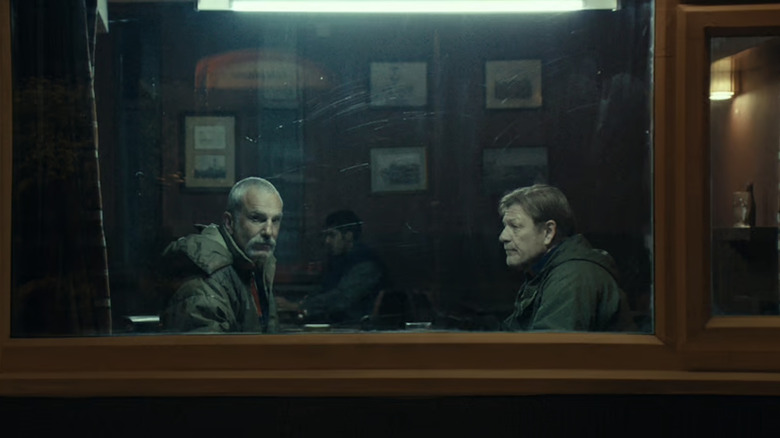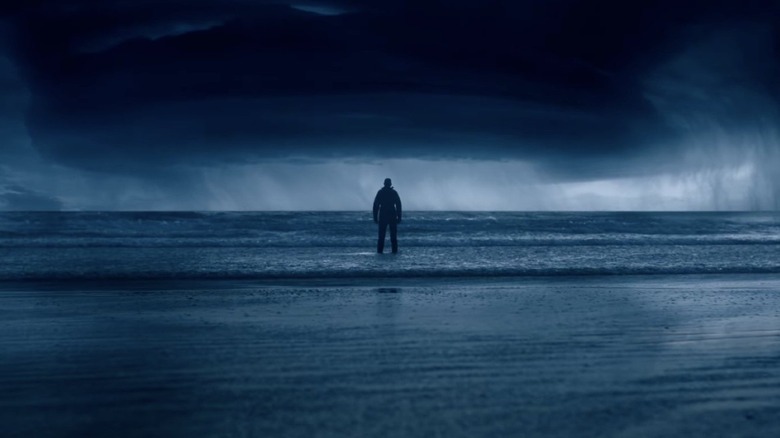Anemone Review: Daniel Day-Lewis Shines In An Otherwise Dull Drama [NYFF 2025]
- Daniel Day-Lewis is still one of the greatest actors ever
- The cinematography is beautiful
- Oppressively dour and dull
- Repetitive and drawn out, only to end where it’s getting interesting
"Anemone" has been one of the big mysteries of the fall 2025 prestige movie season. For a long time, little was known about the film except that it's the directorial debut of Ronan Day-Lewis and features a long-awaited return to acting from Daniel Day-Lewis, who co-wrote the script with his son. The official summary is deliberately vague — "'Anemone' explores the complex and profound ties that exist between brothers, fathers, and sons." The trailers give a bit more, showing that DDL's character Ray Stoker is a hermit who did something bad in war a long time ago and is having some sort of tense reunion with his brother Jem (Sean Bean), but with a barrage of unexplained horror-ish imagery amidst this mystery set-up, the "what even is this movie?" questioning remained high.
Now "Anemone" has premiered at the 2025 New York Film Festival, less than a week from its theatrical release, and it makes complete sense why Focus Features has kept the movie so mysterious: frankly, it's impossible to sell to a mainstream audience beyond the appeal of its cast, and it's sadly not worth the time for audiences outside the mainstream either. Even the best version of the film "Anemone" wants to be would be an immense bummer — imagine if "The Banshees of Inisherin" was completely drained of humor and had more self-pitying war criminals. And Ronan's first feature is not the best version of itself (and far from the list of its star's best movies). While DDL's acting genius gives the film some spark, those sparks are sapped by lethargic pacing and serious pretentiousness.
Two monologue scenes surpass the rest of the film
The opening shot of "Anemone" immediately grabs one's attention: a slow pan across childlike drawings illustrating the a scene of violence from the Northern Irish Troubles. From there, we're introduced to the forests where Ray has hidden away from the world for two decades. Jem receives coordinates for where to meet with his brother, a meeting which is a sore subject for the rest of his family — Ray abandoned his wife Nessa (Samantha Morton) while she was pregnant, and their son Brian (Samuel Bottomley) has grown up resenting his biological father, seeing his uncle as his real dad.
Questions of nature vs. nurture are raised by Brian's growing interest in military enlistment, following in Ray's footsteps in a manner nobody else would want to happen. I figure this story about fathers and sons has some serious personal resonance to the father-and-son creative team behind the film, and with another draft of the script and some judicious editing, it's possible to imagine a version of this being quite moving. But "Anemone" is too drawn out, too overbearing in some places and too obscure in others to get much of an emotional reaction at all.
That is, except for when it's time for Ray to monologue. Daniel Day-Lewis, one of the best actors of all time, does an astonishing job performing both of his two big monologue scenes, enough so to carry material that would turn me off in lesser hands. The first is the closest thing "Anemone" has to a joke, one so dark and disgusting that it prompted walk-outs at the New York Film Festival press screening, yet his telling of it is captivating. The second is where Ray finally reveals the source of trauma that made him leave his family and society as a whole — another ugly story, and one where I'm not sure how bad to let myself feel for the character, but his acting sure made me feel something. That control of his facial muscles!
Repetitive — when it's not baffling
The striking nature cinematography by Ben Fordesman ("Love Lies Bleeding," "Out of Darkness") and blaring depressing rock score by Bobby Krlic ("Eddington," "Him") give "Anemone" an aesthetic appeal that can carry interest only so far. The imagery is beautiful but repetitive, and shots are left running far longer than they need to (that showstopper second monologue is followed by full minute of Ray and Jem just walking down the beach). The music becomes a blunt instrument — the score's good in pieces, but it's too much of the same over and over again, smothering out any hint of levity. I was particularly baffled by the use of the score in a scene where the brothers dance to something on the radio — maybe not hearing the music they're actually dancing to is just to avoid licensing fees, but nobody would ever dance to the score we hear.
Bits of surreal weirdness spice up the repetition on occasion — a giant fish, a biblical plague of hail, a blue glowing creature that looks like Picasso redesigned Harry Potter's Patronus. Does the weird imagery mean anything? That's for the viewer to interpret. Some might enjoy being confused by the weirdness, while others will bounce off how half-baked the attempts at artiness feel. Count me in the latter group. I found this neither good horror nor effective magical realism, and it doesn't go nearly far enough to be compelling on the level of pure abstraction.
"Anemone" is a movie scared to include even a hint of levity, which in turn numbs us to its self-seriousness. If the ending is meant to be our moment of hope and relief, it falls flat because we know the most interesting part of this story has yet to happen. Cut the movie we saw down significantly and use the remaining time to fit in an additional act of what happens next, and maybe it would be a winner. As released, even another great Daniel Day-Lewis performance can't push this into something I'd recommend. It's both a bummer and a bore.
"Anemone" premiered at the 2025 New York Film Festival. It opens in theaters on October 3.


